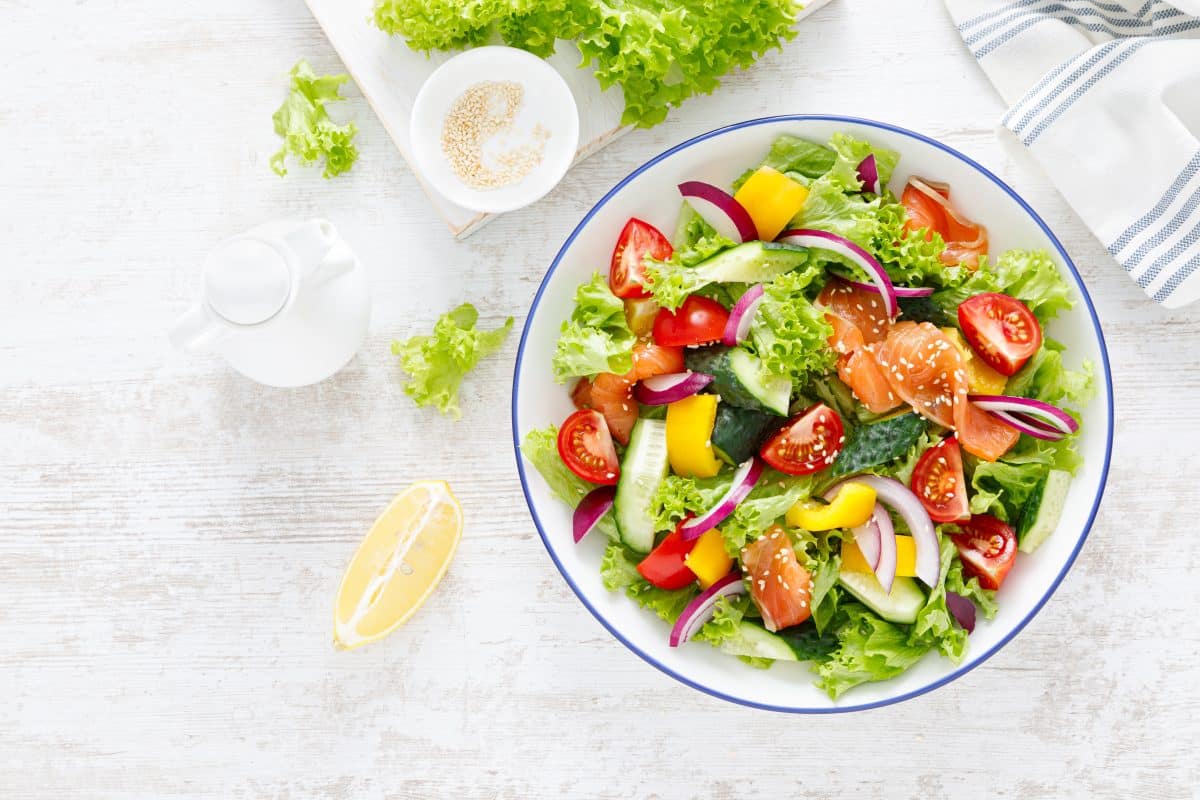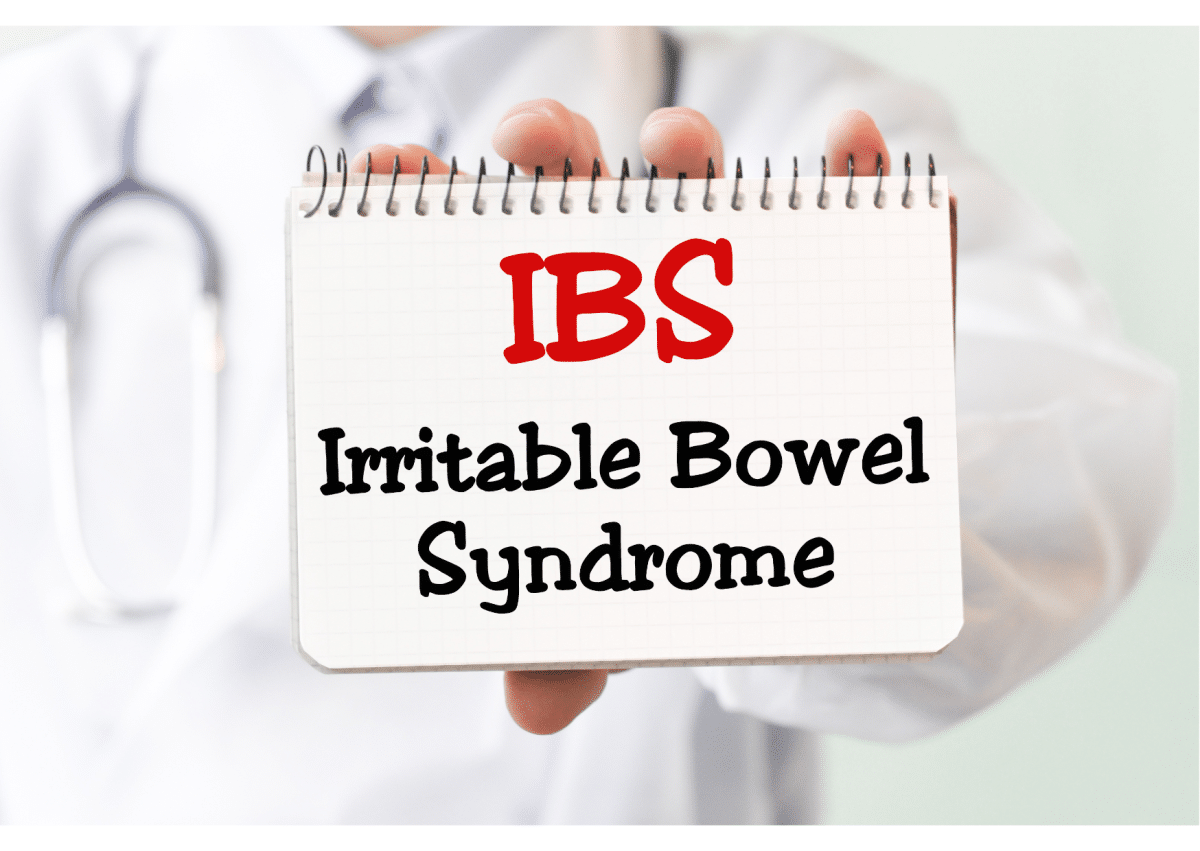The paleo diet & IBS – does it work?
- Dietary Advice (non Low FODMAP)
Have you googled “paleo diet IBS” to learn if this diet can help you with your gastrointestinal symptoms caused by IBS?
In this article, you will get all the information about the paleo diet and IBS in one place.
We will explain the paleo diet, whether it is good for our health, and whether it can help or worsen IBS.

WHAT IS THE PALEO DIET?
The paleo diet (or Paleolithic diet) is based on what early humans presumably ate during the Paleolithic era, roughly 2.5 million to 10,000 years ago.
Followers of the diet think that diseases like cancer and heart disease which are on the rise are due to the dietary changes over thousands of years.
And so they base their diet on what the cavemen ate.
Allowed foods on the paleo diet:
- Meat
- Fish
- Fruits
- Vegetables
- Nuts
- Seeds
- Fats
Foods to avoid on the paleo diet:
- Grains
- Legumes
- Sugar
- Dairy
- Vegetable oils
- Alcohol
- Any processed foods
IS THE PALEO DIET GOOD FOR OUR HEALTH?
The diet can positively impact health due to whole, unprocessed foods, but it can also cause several health problems due to nutrient deficiencies.
The proponents of the paleo diet believe that the diet prevents obesity, diabetes, and cardiovascular diseases.
In a 2022 study with more than 18,000 participants, researchers discovered that the paleo diet may decrease the risk for cardiovascular diseases (1).
The positive effect of the paleo diet could be due to a high intake of fruits and vegetables and low consumption of ultra-processed foods.
However, the diet excludes several food groups, potentially leading to nutrient deficiencies, such as B vitamins and calcium.
The diet excludes grains and legumes, which can lead to insufficient fiber intake and, therefore, digestive problems (loose stools or constipation).
CAN THE PALEO DIET HELP IBS?
There is no evidence that the paleo diet is good for IBS, but let’s check how it could potentially impact IBS.
The paleo diet excludes grains, legumes, and dairy, which contain fermentable carbohydrates called FODMAPs and are one of the IBS triggers.
Reducing FODMAP intake can help with IBS symptoms. FODMAPs are poorly absorbed in the small intestine and draw water, causing loose stools.
When FODMAPs arrive in the large colon, bacteria ferment them and produce gas, which you experience as bloating, excess gas, and abdominal pain.

CAN THE PALEO DIET WORSEN IBS?
Yes, the paleo diet may worsen IBS.
A less diverse diet does not only mean potential harm to nutrient deficiencies but also less diverse gut microbiota (which is already altered in people with IBS).
Although we do not know what a healthy gut microbiota is, the diversity of gut bacteria is one of the indicators of a balanced gut microbiota.
The paleo diet is also higher in fat, one of the IBS triggers.
Fat triggers the gastro-colic reflex (which can be over- or under-stimulated in people with IBS) and makes it urgent to open the bowels right after a meal (2).
A high-fat meal can also slow down the transit of intestinal gas. Trapped gas contributes to bloating and abdominal pain in people with IBS (3).
THE BEST DIET FOR IBS
The best diet for IBS is balanced and diverse, providing you with all nutrients.
As we mentioned, FODMAPs are one of the IBS triggers. However, this does not mean you must avoid all FODMAPs; instead, you should adjust the quantity you can tolerate.
The low FODMAP diet can help you discover which FODMAPs you tolerate and in what quantities.
The low FODMAP diet is a three-step approach consisting of:
- The restriction phase
- The reintroduction phase
- The modified diet
To learn about how vegan, keto, and other diets impact IBS, read our article: IBS diet ultimate guide.
SUMMARY
The paleo diet presents the presumed eating habits of early humans from approximately 2.5 million to 10,000 years ago.
The diet includes eating meat, fruits, vegetables, nuts, seeds, and other fats, such as avocado.
We do not recommend the paleo diet for IBS as it is restrictive and eliminates several food groups which can cause nutrient deficiencies.
Moreover, the paleo diet can harm gut microbiota and can trigger IBS symptoms due to higher-fat meals.
Written by Barbara Lešnik, Student Dietitian, reviewed by Kirsten Jackson, Consultant Dietitian BSc Hons, RD, PG Cert